Cease and Desist Letter Template for Debt Collectors
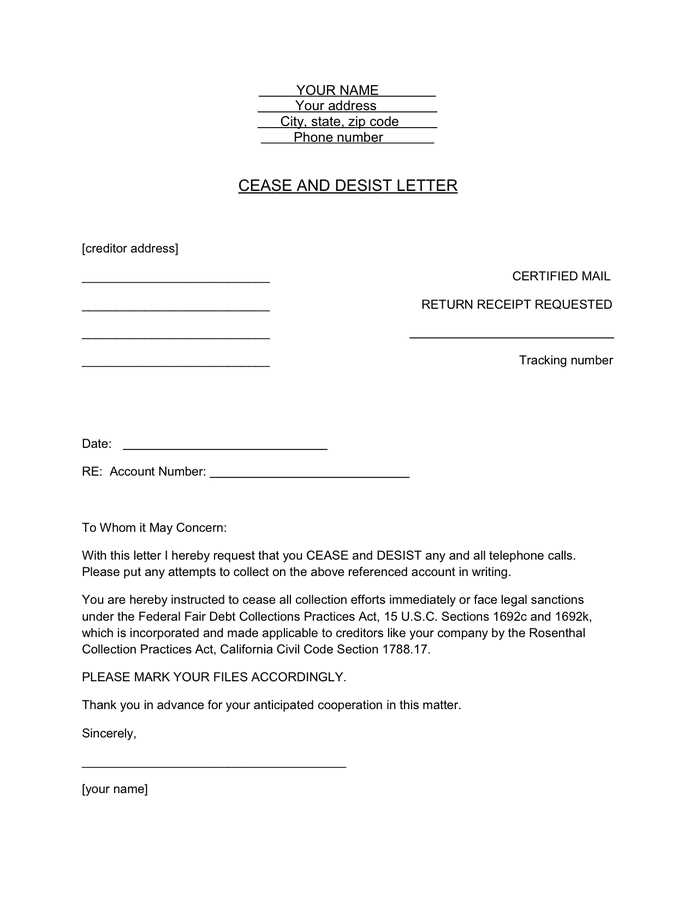
If you’re facing constant pressure from individuals or agencies requesting payment for outstanding amounts, you have the right to put an end to these intrusive actions. There are formal steps you can take to ensure that these attempts stop immediately, protecting your peace and privacy. This section covers how to formally address the issue and regain control over your financial situation.
Key Information to Include in Your Document
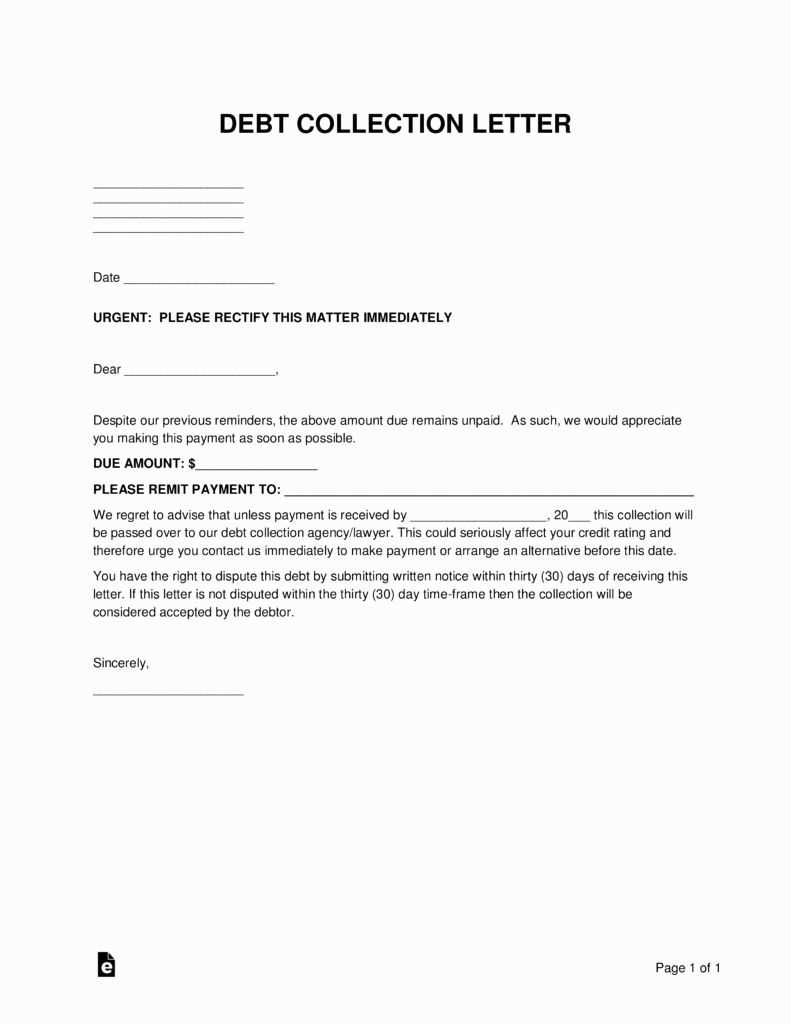
To make your request clear and enforceable, include the following details:
- Full Name and Address: Identify yourself and provide your contact details to avoid any confusion.
- Recipient’s Information: Clearly state the name and address of the party sending the demands.
- Clear Statement of Your Request: Specify that you wish to stop all future communications related to the claim.
- Date of Request: Include the date you are making the formal request.
Additional Considerations
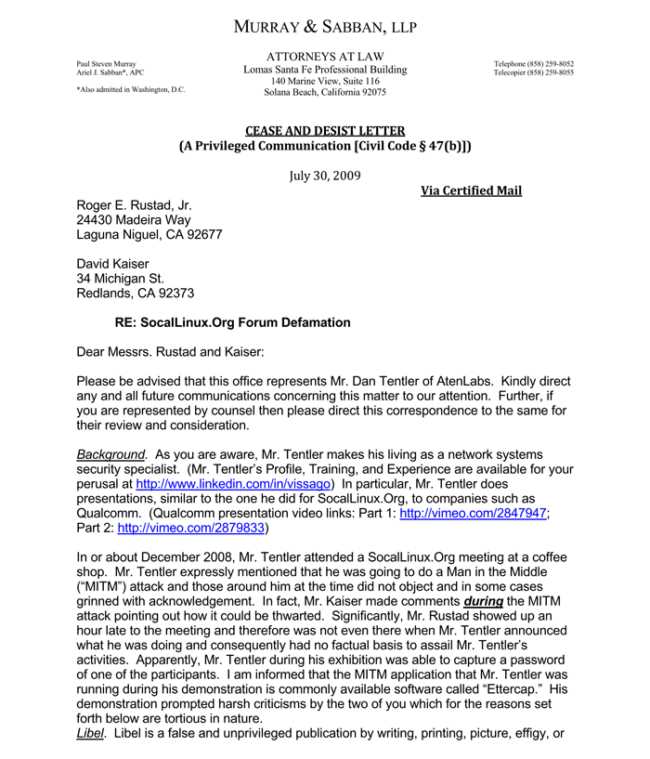
Ensure that the document is polite yet firm. Avoid any language that could be interpreted as aggressive, as your goal is to stop communication without escalating the situation further. Make it clear that you are aware of your legal rights and are prepared to enforce them if necessary.
When to Use This Approach
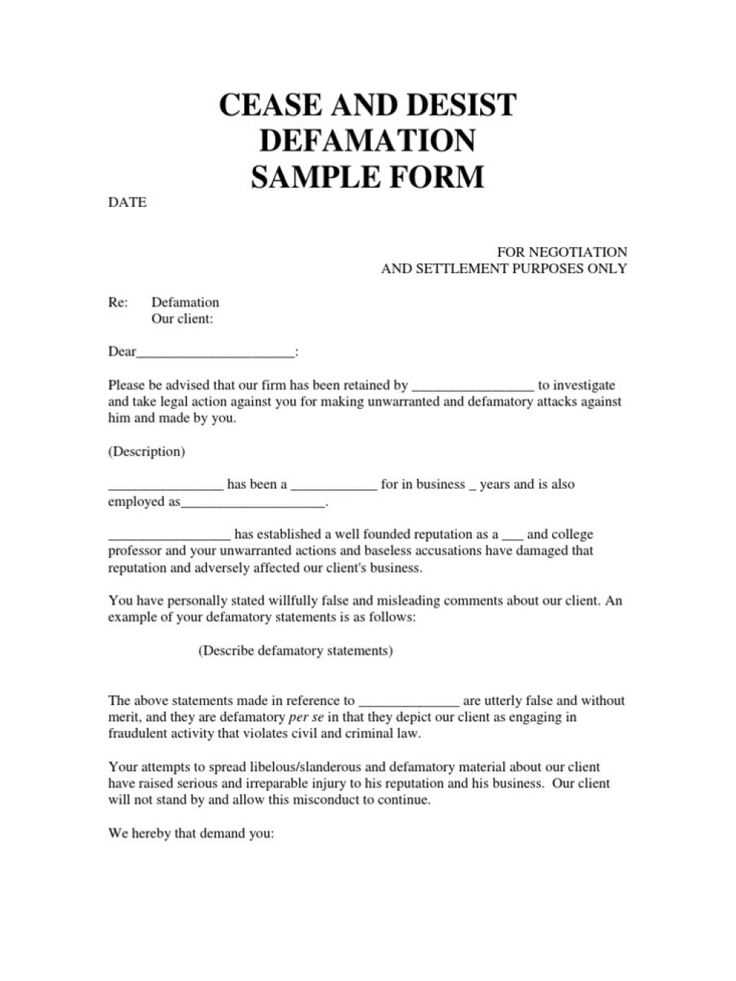
This method is most effective when other attempts to resolve the matter directly with the entity have failed. If you continue receiving unsolicited demands after you’ve clearly communicated your wishes, this formal step provides a legal foundation for further action.
What to Expect After Sending Your Request
Once you submit your request, the recipient is required by law to cease all contact. If they continue to reach out, you have grounds for legal action. Keep a copy of your document for your records and be prepared to escalate the matter if necessary.
Why You Might Need to Stop Unwanted Communications
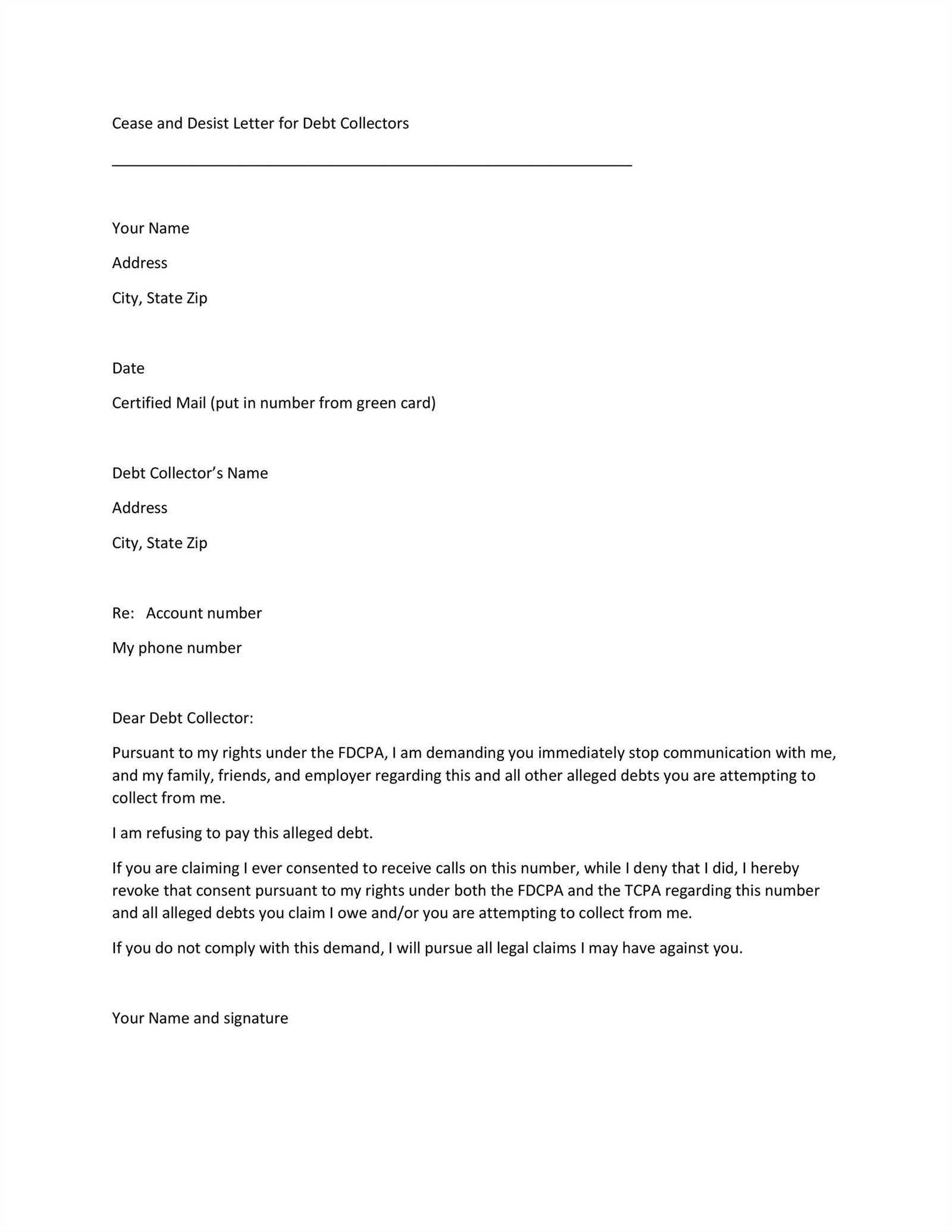
If you’re overwhelmed by persistent requests for payment or other financial demands, it’s crucial to understand your legal rights. There are official means to stop these attempts, allowing you to regain control over the situation. This section explains why it’s necessary, the legal protections available to you, and how to take appropriate action.
Understanding the Legal Framework
Debt recovery practices are subject to specific laws that aim to protect individuals from harassment. The Fair Debt Collection Practices Act (FDCPA) in the United States, for example, establishes rules governing how agencies can communicate with individuals about their obligations. Knowing these regulations can help you assess whether the actions of a collection entity are overstepping legal boundaries.
Key Elements of an Effective Request
When seeking to stop communication, ensure that your request is clear, concise, and legally sound. An effective notification includes your contact information, a clear demand for an end to the harassment, and a formal statement referencing your legal rights. This helps ensure that your request is taken seriously and legally binding.
How to Create Your Formal Request
Drafting this type of document requires precision. Start by stating your name and address clearly. Then, specify the party from whom you are requesting a halt in communication. Make your request explicit, indicating that you no longer wish to receive any form of contact regarding the issue in question. Also, reference the relevant laws to support your claim.
When to Send Your Request
Timing is important. You should send this document when other communication attempts have failed, or when you feel the requests are becoming harassing or overwhelming. It is often advisable to do this in writing so that you have a record of your request in case further action is necessary.
What Happens After You Send the Request
Once the request is sent, the recipient is legally obligated to stop contacting you. If they continue to reach out, you may have grounds to escalate the matter, including potential legal action. Keep a copy of all communications for your records and be ready to take the next steps if needed.